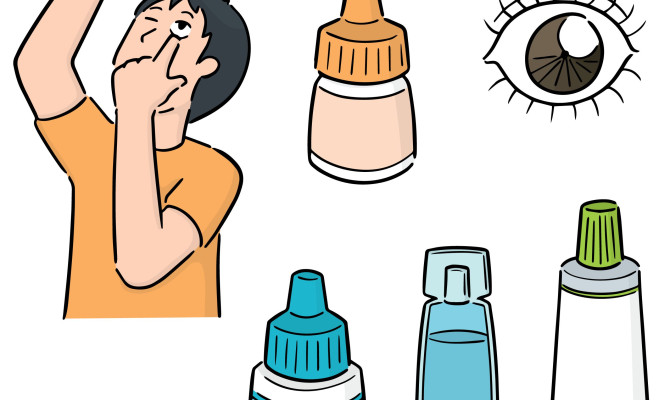Avastin : Uses, Side effects, and Precautions

- Avastin
- 16 Aug 2023
Overview
What is Avastin ?
Age-related macular degeneration (AMD) is one of the conditions that can be treated with the medication Avastin. Additionally, it is utilized in the treatment of diabetic eye disease in addition to other issues pertaining to the retina.2Overview| Researched based study from Aao.org It is administered through injection into the eye in an effort to slow down the progression of visual loss caused by certain disorders.
The generic name of this medication is bevacizumab, however it is more often known by its brand name, Avastin. Products for injection that contain bevacizumab are classified as “antiangiogenic agents,” which is a category of medication. It performs by obstructing the growth of blood vessels in the rear of the eye that are aberrant. Additionally, it prevents fluid from these blood vessels from spreading into the surrounding tissue. The fluid leaking can have an effect on one’s eyesight, perhaps leading to vision loss as a result of wet AMD or diabetic eye disease.

Uses
Uses of Avastin
The Food and Drug Administration (FDA) initially gave its approval for the use of Avastin in the treatment of several types of cancer. Its usage to treat eye illness is regarded to be an “off-label” application of the medication. Other uses include:1Uses| Researched based study from Medlineplus.gov
- Wet age-related macular degeneration (AMD)
- Macular edema or retinal swelling
- Diabetic retinopathy
- Retinal vein occlusion
- Choroidal neovascularization
Bevacizumab injection products are employed in combination with other chemotherapy drugs to treat:
- A variety of cancers, including colon and rectal cancer
- Non-small cell lung cancer (NSCLC)
- Glioblastoma (a specific type of cancerous brain tumor)
- Renal cell cancer (a cancer that starts in the kidney)
- Cervical cancer
- The ovarian, fallopian tube, or peritoneal cancer.2Uses| Researched based study from Aao.org
In patients who have not been treated with chemotherapy in the past, the combination of bevacizumab (Avastin) and atezolizumab (Tecentriq) has been shown to be effective in treating hepatocellular carcinoma (HCC) that has either spread or that cannot be removed by surgery. 1Uses| Researched based study from Medlineplus.gov , 2Uses| Researched based study from Aao.org
Side effects
Potential Side effects associated with Avastin usage
There is a possibility that bevacizumab injectable products will induce side effects. Talk to your primary care provider if any of the following symptoms become very bothersome or if they fail to improve1Side effects| Researched based study from Medlineplus.gov
- Dizziness
- A reduction or elimination of appetite
- Heartburn
- Alterations in one’s capacity to enjoy the flavor of food
- Diarrhea
- A reduction in body weight
- Mouth ulcers
- Changes in vocal quality and pitch of the voice
- A fluctuating amount of tears either increased or decreased
- Soreness in the muscles or joints
- Stuffiness in the nose, or runny nose
- Trouble sleeping dry skin
Some of the adverse effects could also be dangerous to one’s life. If you have any of these symptoms, you should seek immediate medical attention by either consulting your primary care physician or going to the nearest hospital emergency room:
- Nosebleeds or bleeding from the gums
- Bleeding from the mouth
- Coughing up blood or material that resembles coffee grounds
- Vomiting blood or spitting up blood
- Unusual bleeding or bruises
- Increased menstrual discharge
- Bleeding from the vagina
- Pink, crimson, or dark brown-colored urine
- Red or tar-colored black bowel excrements
- Headache
- Lightheadedness
- General weakness
- Slurred or difficult to understand speech
- Weakness in the legs and/or arms
- A feeling of numbness in one’s arm or leg
- Pain or discomfort experienced in the chest
- Discomfort felt in the arms, shoulders, neck, jaw, or upper back
- A feeling of straining to catch one’s breath
- Seizures
- Extreme weariness
- Confusion
- Alterations to one’s vision or the complete loss of one’s vision
- A sore throat, fever, chills, and other symptoms of infection
- The face, eyes, stomach, hands, feet, ankles, and lower legs may enlarge.1Side effects| Researched based study from Medlineplus.gov
- A sudden and unexpected increase in weight
- Foamy urine with discomfort
- Tenderness, warmth, redness, or swelling in one leg alone
- Rash or redness, itching, or scaling of the skin
- Stomach pain
- Constipation
- Nausea, vomiting
- Shivering
Complications
Complications related to Avastin use
- Formation of non-gastrointestinal fistulas
- Arterial thromboembolic events (including myocardial infarction and cerebral infarction)
- Syndrome of Reversible Posterior Leukoencephalopathy (RPLS) Associated with Hypertension
- Infusion Reactions Associated with Proteinuria 4Complications| Researched based study from Dailymed.Nlm.nih.gov
Interactions
Interactions of Avastin
Drugs used to treat cancer have the potential to interact with other medications, herbal treatments, and even certain foods and beverages.3Interactions| Researched based study from Cancerresearch.org
- One such substance is grapefruit or grapefruit juice, both of which have been shown to intensify the negative effects of certain medications.
- It is important that your healthcare staff is aware of any medicines that you are currently consuming. This includes dietary supplements, like vitamins and herbal extracts, as well as over-the-counter medicines.
- Also make sure your medical examiner and nurse are aware of any other medical concerns you may have, including any allergies you may have.
Dosage
Dosage of Avastin
Metastatic Colorectal cancer
When Avastin is delivered along with fluorouracil-based chemotherapy that is given intravenously, the following dosages are recommended:
- 5 milligrams per kilogram administered intravenously every two weeks in conjunction with bolus-infusion of fluids.
- 10 mg/kg IV every two weeks along with FOLFOX4 5 mg/kg IV every two weeks
- 7.5 mg/kg IV every three weeks along with chemotherapy based on fluoropyrimidine-irinotecan or fluoropyrimidine-oxaliplatin in persons who have developed on a first-line bevacizumab product-containing schedule.4Dosage| Researched based study from Dailymed.Nlm.nih.gov
First-Line Treatment Options for Patients With Non-Squamous, Non-Small Cell Lung Cancer
- When used in conjunction with carboplatin and paclitaxel, the suggested dosage is 15 milligrams per kilogram administered intravenously once every three weeks.5Dosage| Researched based study from Fda.gov
Recurrent Glioblastoma
- The dosage that is recommended is 10 milligrams per kilogram to be administered intravenously every two weeks.
Metastatic Renal Cell Carcinoma
- In conjunction with interferon alfa, the suggested dosage is 10 milligrams per kilogram to be administered intravenously every two weeks.
Persistent, Recurrent, or Metastatic Cervical Cancer
- The suggested dosage is 15 milligrams per kilogram administered IV once every three weeks in conjunction with paclitaxel and cisplatin or along with paclitaxel and topotecan.
Cancer of the Epithelial Lining of the Ovary, Fallopian Tube, or Peritoneum
- Avastin 15 mg/kg every three weeks for a total of up to 22 cycles or until the illness progresses, whichever comes first.
- The recommended dosage is 15 mg/kg IV every 3 weeks in conjunction with carboplatin and paclitaxel for up to six cycles.
- After that, the patient should take Avastin 15 mg/kg every 3 weeks as a single agent. 5Dosage| Researched based study from Fda.gov
Hepatocellular Carcinoma
- After the injection of 1,200 mg of atezolizumab IV on the same day, the suggested dosage is 15 mg/kg IV.
- This is followed by the administration of 1,200 mg of atezolizumab intravenously every three weeks until the disease progresses or the toxicity becomes unacceptable.
Before beginning treatment with atezolizumab, it is important to review the medication’s prescribing Information in order to obtain information regarding the appropriate dosage.
Precautions
Precautions to take before consuming Avastin
- Be sure to let your doctor and pharmacist know if you are allergic to bevacizumab, bevacizumab-awwb, bevacizumab-adcd, bevacizumab-bvzr, or bevacizumab-maly, as well as any other drugs or any of the constituents in bevacizumab injection products before you receive a bevacizumab injection product.1Precautions| Researched based study from Medlineplus.gov
- Inform both your doctor and your pharmacist about the prescription and OTC medications, vitamins, nutritional supplements, and herbal products that you are presently taking or intend to take in the future.
- It’s possible that your doctor will need to modify the drug dosages or closely monitor you to check for any adverse side effects.
- Tell your medical examiner if you have ever undergone radiation therapy to the left side of your chest or pelvis, as well as if you suffer from or have suffered from bleeding disorders, diabetes, high blood pressure, or heart failure. In addition, if you have recently coughed up blood, you should mention that to your doctor.1Precautions| Researched based study from Medlineplus.gov
- You should be aware that bevacizumab injectable products can potentially induce infertility in women (difficulty becoming pregnant), but you should not automatically assume that you will not be able to conceive a child if you use these products.
- Inform your physician if you are pregnant or if you want to become pregnant in the near future. It is important that you take birth control precautions to avoid becoming pregnant while you are undergoing treatment with a bevacizumab injectable product, as well as for at least six months after your treatment has ended.
- Call your healthcare provider immediately if you discover that you are pregnant while using a bevacizumab injectable product. Bevacizumab may be harmful to the developing fetus and may also raise the probability of a miscarriage.
- If you are breastfeeding, you should let your doctor know. You should stop breastfeeding while you are receiving therapy with a bevacizumab injectable product, and you should continue to wait at least six months following your last dosage before starting again.1Precautions| Researched based study from Medlineplus.gov
- You should be aware that the usage of this medicine can potentially result in ovarian failure.
- Inform your primary care physician if you have just undergone surgery or if you are planning on undergoing any type of surgery, including dental surgery.
- If you are about to have surgery, your doctor will tell you to cease receiving treatment with an injection product that contains bevacizumab at least 28 days before the procedure.
- If you have recently undergone surgery, you should wait at least 28 days until the affected area has completely healed before getting an injection of bevacizumab or any other product containing the drug.
Takeaway
Takeaway points
- An angiogenesis inhibitor like bevacizumab is a sort of targeted medication that can be used to treat certain types of cancer. It is a monoclonal antibody, and its mechanism of action consists of inhibiting the development of new blood vessels, which are essential for the continued expansion of tumors.
- Before starting therapy and at regular intervals during it, you will have your blood drawn. They examine the quantities of several substances and cells in your blood, including the blood cells. In addition to that, they examine the state of your kidneys and liver to see how well they are functioning.
- The frequency of the adverse effects and the degree to which they are felt might vary greatly from one individual to the next. In addition to this, they are influenced by the other treatments that you are undergoing.
Any feedback on this article?
 This Articles content was accurate
This Articles content was accurate Very Informative Article
Very Informative Article I have a question or a comment
I have a question or a comment
 This article contains inaccurate content
This article contains inaccurate content This article was not helpful
This article was not helpful I have a question or a comment
I have a question or a comment
We appreciate your helpful feedback!
Checkout our social pages
References
-
Medline Plus
Bevacizumab Injection | Uses | Side effects | Precautions
-
American Academy of Ophthalmology
What Is Avastin? | Overview | Uses
-
Cancer Research U.K
Avastin (Bevacizumab) | Contraindications
-
DailyMed
AVASTIN- bevacizumab injection, solution | Dosage | Complications
-
U.S. Food and Drug Administration
AVASTIN® (bevacizumab) | Dosage



































